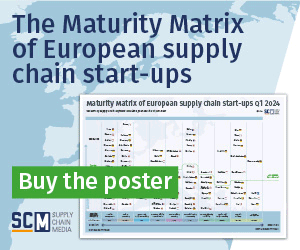Gartner warns of ‘blockchain fatigue’ in supply chain

Although blockchain remains a popular topic, leading companies are not yet managing to find suitable use cases according to research and consulting firm Gartner. Therefore, the firm predicts that 90% of the supply chain initiatives based on the much-discussed technology will show signs of ‘blockchain fatigue’ by 2023.
Gartner’s research into user wants and needs reveals that just 19% of respondents consider blockchain to be a very important technology for their business, and only 9% have actually invested in it. This is mainly because there are only a handful of supply chain-related blockchain projects so far, and their results do not live up to the initial enthusiasm for the technology’s value in supply chain management.
“Supply chain blockchain projects have mostly focused on verifying authenticity, improving traceability and visibility, and improving transactional confidence,” says Ms Alex Pradhan, senior principal research analyst at Gartner. “However, most cases have remained pilot projects, due to a combination of technology immaturity, lack of standards, overly ambitious scope and a misunderstanding of how blockchain could, or should, actually help the supply chain. Inevitably, this is causing the market to experience blockchain fatigue.”
Trial and error
As an evolving technology, blockchain makes it almost impossible for organizations to identify and address strong specific use cases. Instead, companies are forced to take a trial-and-error approach with pilot projects until they hit on one that can offer real value. Moreover, according to Gartner, the vendor ecosystem is still struggling to achieve market dominance. A further challenge is that supply chain organizations cannot buy a complete and packaged blockchain solution off the shelf.
“Without a vibrant market for commercial blockchain applications, the majority of companies do not know how to evaluate, assess and benchmark solutions, especially as the market landscape rapidly evolves,” continues Pradhan. “Furthermore, current creations offered by solution providers are complicated hybrids of conventional blockchain technologies. This adds more complexity and confusion, making it that much harder for companies to identify appropriate supply chain uses.”
Early adoption not advisable
As blockchain continues to develop in supply chains, Gartner cautions companies against early adoption. According to the research firm, it is better to wait until there is a clear distinction between the blockchain hype and its core capabilities. “The emphasis should be on proof of concept, experimentation and limited-scope initiatives that deliver lessons, rather than high-cost, high-risk strategic business value,” she concludes.









